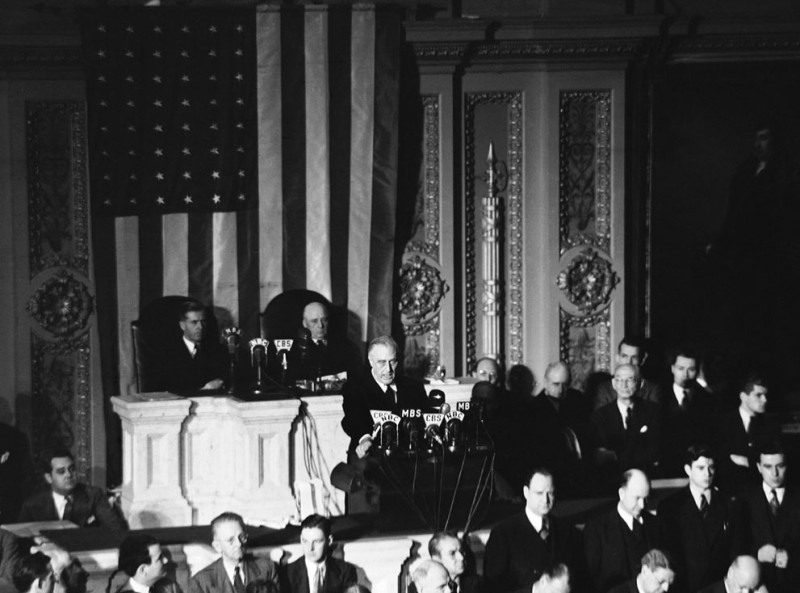[http_redir]
President Obama's address on Wednesday authorizing U.S. airstrikes against the Islamic State (a.k.a. ISIL or ISIS) in Syria, was a sobering reminder of the immense power bestowed on the Commander in Chief to single-handedly order military action.
Like his address last September threatening the use of military force against the regime of Syrian President Bashar al-Assad (a threat that never materialized), Obama's most recent speech was the latest in a long history of solemn presidential declarations of war and authorizations of lesser military action.
Since World War II, the United States' increasingly large and powerful military has been quite busy, to say the least, consistently involved in conflicts around the world. In little over half a century, American forces have fought in five all-out wars (Korea, Vietnam, the first war in Iraq, Afghanistan and the second war in Iraq) and been involved in many additional smaller military invasions.
Among the abundant collection of scrupulously crafted calls to arms delivered by generations of presidents, many share similar stylistic and rhetorical devices:
- A strong justification of action, emphasizing a deep sense of urgency
- Clear-cut dichotomies between forces of good and evil
- An emphasis on American benevolence and exceptionalism
- A clearly articulated statement about the weightiness of the decision, one only made as a last resort.
- An assurance that America's military involvement is grounded in humanitarian intent and will ultimately lead to a lasting peace
Take, for instance, these lines from Obama's most recent address:
"Abroad, American leadership is the one constant in an uncertain world. It is America that has the capacity and the will to mobilize the world against terrorists ... America, our endless blessings bestow an enduring burden. But as Americans, we welcome our responsibility to lead. From Europe to Asia — from the far reaches of Africa to war-torn capitals of the Middle East — we stand for freedom, for justice, for dignity. These are values that have guided our nation since its founding. Tonight, I ask for your support in carrying that leadership forward."
Presidents are also often careful in these addresses to proactively repudiate notions of American imperialism, self-interest and aggression, and to make clear that, far than policing the world, the United States is exercising its military might as a force for good.
